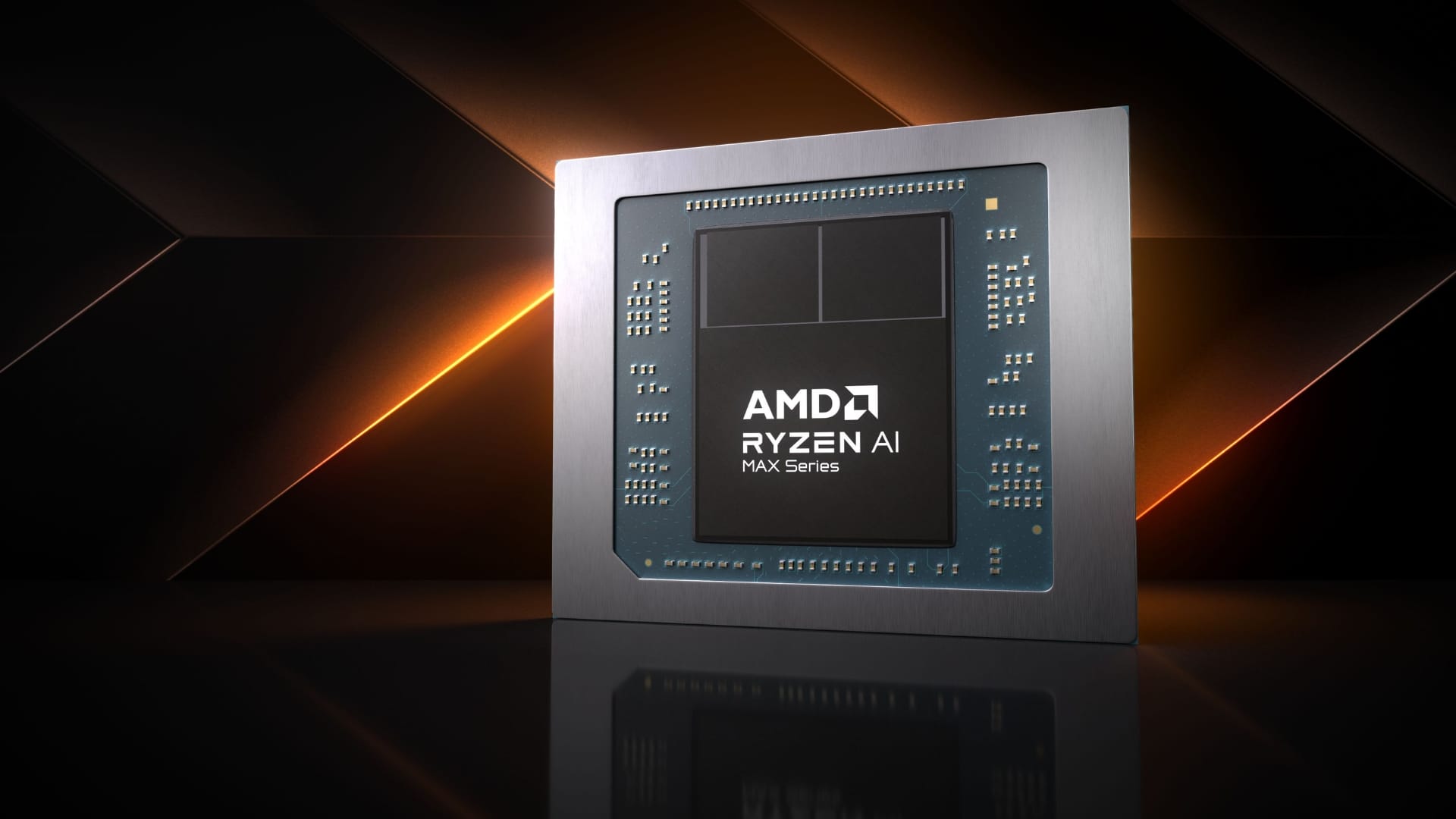AMD expands AI PC processor lineup with Ryzen AI Max, AI 300, and Ryzen 200 series
AMD launches Ryzen AI Max, AI 300, and Ryzen 200 series processors, delivering powerful AI capabilities for consumers and business users at CES 2025.

AMD has announced an expanded portfolio of AI-powered processors ahead of CES 2025, reinforcing its leadership in the AI PC market. The lineup includes the Ryzen AI Max, Ryzen AI 300, and Ryzen 200 series processors, designed to deliver exceptional performance for both consumer and business systems.
Table Of Content
Jack Huynh, Senior Vice President and General Manager of AMD’s Computing and Graphics Group, said, “As consumers and professionals increasingly recognise the productivity benefits of AI PCs, AMD is further increasing its performance leadership in the market. With the next generation of AI-enabled processors, we are proliferating AI to devices everywhere, and bringing the power of a workstation to thin and light laptops.”
Ryzen AI Max and AI Max PRO series redefine AI performance
The Ryzen AI Max series processors are engineered for next-generation AI PCs, offering up to 16 ‘Zen 5’ CPU cores, up to 40 RDNA 3.5 graphics compute units, and an AMD XDNA 2 Neural Processing Unit (NPU) with up to 50 TOPS of AI performance. With support for up to 128GB of unified memory, these processors are tailored for power-intensive applications, enabling seamless multitasking and large AI model processing.
The Ryzen AI Max PRO series caters specifically to business users, integrating AMD PRO technologies for enterprise-level security and manageability. These processors are built for advanced workloads, including engineering and architectural modelling, while maintaining mobility and power efficiency.
Both series are set to be available from Q1 2025.
Ryzen AI 300 and AI 300 PRO series bring AI capabilities to mainstream users
AMD’s Ryzen AI 300 series processors are designed to bring premium AI experiences to a wider range of users. With up to 8 ‘Zen 5’ CPU cores, RDNA 3.5 graphics, and advanced XDNA 2 NPU technology, these processors deliver up to five times better AI performance than their predecessors.
The AI 300 PRO series focuses on supporting productivity and Microsoft Copilot+ experiences, offering over 50 TOPS of AI performance. These processors are equipped with AMD PRO technologies, ensuring secure and manageable enterprise systems.
Devices powered by Ryzen AI 300 and AI 300 PRO processors are expected to hit the market in Q1 2025.
Ryzen 200 and 200 PRO series for everyday efficiency
For everyday computing, AMD introduces the Ryzen 200 and Ryzen 200 PRO series, based on the proven ‘Zen 4’ architecture. These processors offer up to 8 cores, RDNA 3 graphics, and up to 16 NPU TOPS for AI-enhanced applications. They are optimised for efficiency, long battery life, and dependable performance.
Systems featuring Ryzen 200 and 200 PRO processors are anticipated in Q2 2025.
Industry partnerships and OEM collaborations
OEM partners, including Dell, ASUS, HP, Lenovo, and MSI, have joined AMD in bringing these AI-powered systems to market. ASUS Co-CEO Samson Hu said, “Today, we are announcing new Ryzen-powered systems, bringing best-in-class processing power to enable our customers to be on the forefront of AI innovation.”
HP’s Senior Vice President Jim Nottingham added, “Powered by AMD’s Ryzen AI Max PRO Series processors, our new HP ZBook Ultra G1a and Z2 Mini G1a redefine mobile workstation capabilities.”
Microsoft’s Pavan Davuluri highlighted the collaboration, stating, “We’re thrilled to see the expansion of Copilot+ PCs with AMD’s new Ryzen AI products for professionals, content creators, and mainstream consumers alike.”
AMD continues to push boundaries in AI processing, delivering innovations that empower both consumers and businesses.














